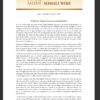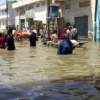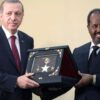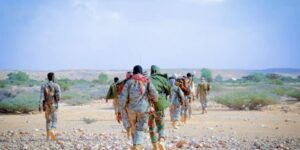Thousands of African Union peacekeepers have lost their lives or have been severely injured in efforts to save the government and the public infrastructure from al-Shabaab militants in Somalia, since early 2007. As stated by Mohamed El-Amine Souef, representative of the chairperson of the AU Commission for Somalia, as many as 4,000 casualties have been documented, while the actual numbers could go over 5,000. The majority of these causalities are among the troops from Burundi and Uganda. This is the first time an official statement has been made regarding the overall casualties of peacekeepers in Somalia.
In April 2022, the AU Mission in Somalia was renamed to AU Transition Mission (ATMIS) and had the target of withdrawing from Somalia by December 2024, handing over the security responsibilities to the Somali forces. At present, around 19,000 peacekeepers are operating in Somalia.
Souef has committed to compensating the families of soldiers killed in Somalia, as some have not been recognized due to a lack of funds. He emphasized that the countries that contributed troops came to Somalia for a good reason and should be reimbursed. The Somali government also paid tribute to the sacrifices made by AU peacekeepers, with Hussein Sheikh-Ali, national security adviser to the president of Somalia, saying that the Somali people are in their debt.
Al-Shabaab has been attempting to unseat the internationally supported government of Somalia for years, leading to the expulsion of the militants from Mogadishu in July 2011 after over two years of deadly street fighting. However, this has come at a cost, with complex raids on front-line operating bases resulting in the deaths of hundreds of AU forces. In May 2022, over 30 peacekeepers were killed in the town of El-Baraf in the last major attack.
The Somali government has been conducting military operations since August 2022, with the aim of defeating al-Shabaab this year. Recently, the government announced that non-ATMIS troops from Ethiopia, Kenya, and Djibouti would participate in a second phase of military operations expected to begin after Ramadan. Souef reported that ATMIS troops from Burundi and Djibouti were providing support, including information, casualty and medical evacuations, and air support using helicopters belonging to Uganda.











